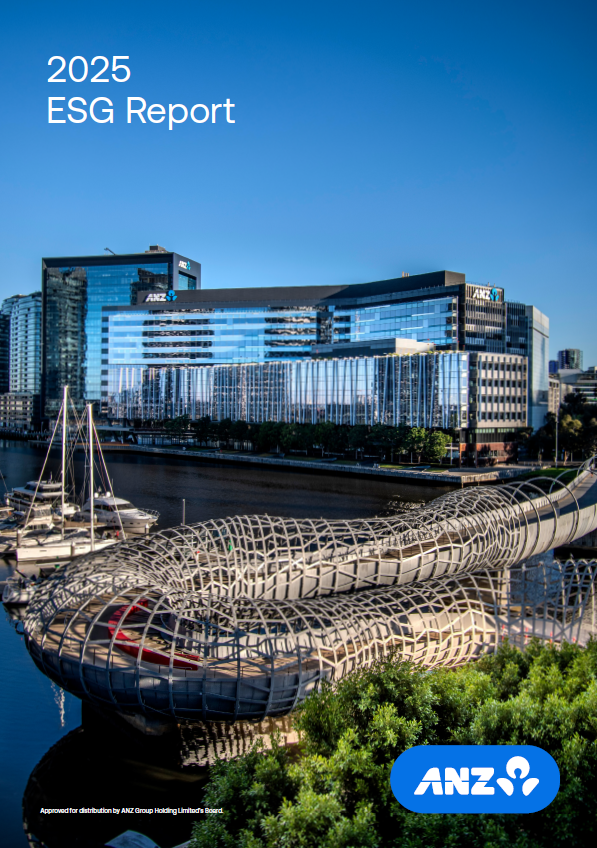Fraud protection.
Now it's personal.
ANZ Falcon® technology monitors millions of transactions every day to help keep you safe from fraud.
Falcon® is a registered trademark of Fair Issac Corporation.

Fraud protection.
Now it's personal.
ANZ Falcon® technology monitors millions of transactions every day to help keep you safe from fraud.
Falcon® is a registered trademark of Fair Issac Corporation.
Fraud protection.
Now it’s personal.
ANZ Falcon® technology monitors millions of transactions every day to help keep you safe from fraud.
Falcon® is a registered trademark of Fair Isaac Corporation.
As a member of the Equator Principles Association since 2006, we seek to ensure the projects we finance and advise on are developed in a manner that is socially responsible and reflect sound environmental management practices.
Our reporting page on the Equator Principles' website can be found here.

The Equator Principles is a risk management framework for determining, assessing and managing social and environmental risks in large infrastructure and industrial projects.
We commit to implementing the Equator Principles through our internal environmental and social policies, procedures and standards for financing projects. We will not provide Project Finance, Project-Related Corporate Loans to Projects or Project-Related Refinance and Project-Related Acquisition Finance to projects where the customer will not, or is unable to, adopt processes aligned with Equator Priniciples where they apply.
We use the Equator Principles as a minimum standard for due diligence and monitoring to support responsible decision-making for Project Finance.
We will require a social and environmental due diligence report (EP DD) from a third party expert where our initial due diligence indicates a likely Category A rating (in all cases) or a Category B rating (where needed) under the Equator Principles. The report will assess the project’s compliance with the Equator Principles and typically considers the following issues:
The Equator Principles complement our sensitive sector Requirements and our Social and Environmental Risk Policy which also apply to Project Finance transactions.
Click here for more information about the Equator Principles and click here for more information about ANZ's approach to social and environmental risk management.

Projects assessed as being within the scope are evaluated against the Equator Principles, including against comprehensive international performance standards (“IFC performance standards”) on issues such as labour and working conditions, natural resource management, pollution prevention, impacts on Indigenous people, community health and safety and universal themes such as gender and human rights.
Projects with a high social or environmental impact are required to consult with local communities about concerns those communities may have. Following consultation they must then prepare a management and monitoring plan describing the actions needed to adequately mitigate the social and environmental risks of the project.
We are required under the Equator Principles to ensure these steps are carried out in collaboration with our customers.
We provide further details on our application of the Equator Principles in our ESG reporting.

This report provides stakeholders with detailed information on ANZ’s ESG performance and challenges. It includes performance against our ESG targets and our management of material ESG issues.